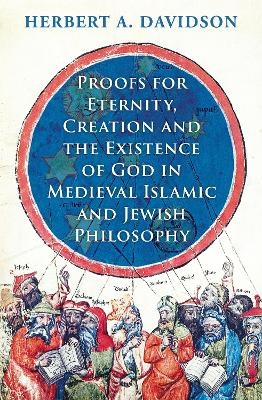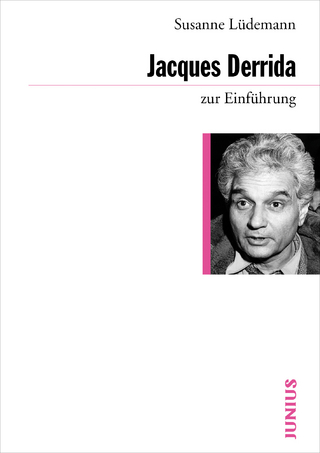
Proofs for Eternity, Creation and the Existence of God in Medieval Islamic and Jewish Philosophy
Oneworld Academic (Verlag)
978-0-86154-240-6 (ISBN)
In this classic study, Herbert A. Davidson examines every medieval Arabic and Hebrew proof for the eternity of the world, the creation of the world and the existence of God which has philosophical character, disregarding only those that rest entirely on religious faith or fall below a minimum threshold of plausibility. Classifying the proofs systematically, he analyses and explains them, and traces their sources in Greek philosophy. He pursues the penetration of some of these Islamic and Jewish arguments into medieval Christian philosophy and, in a few instances, all the way into seventeenth- and eighteenth-century European philosophy.
Unique in both its classification of the proofs and its comprehensiveness, this work will once again serve medievalists, historians of philosophy and historians of ideas.
Herbert A. Davidson was Professor Emeritus of Hebrew at UCLA, where he chaired the Near Eastern Languages and Cultures Department from 1981 to 1987. His other books include Moses Maimonides: The Man and His Works and Alfarabi, Avicenna, and Averroes, on Intellect.
I Introduction
1. Eternity, creation, and the existence of God
2. The present book
II Proofs of Eternity from the Nature of the World
1. Proofs of eternity
2. Proofs of eternity from the nature of the physical world
3. Replies to proofs from the nature of the world
4. Summary
III Proofs of Eternity from the Nature of God
1. The Proofs
2. Replies to proofs from the nature of the cause of the universe
3. Summary
IV John Philoponus’ Proofs of Creation and Their Entry into Medieval Arabic Philosophy
1. Philoponus’ proofs of creation
2. Saadia and Philoponus
3. Kindi and Philoponus
4. Summary
V Kalam Proofs for Creation
1. Proofs from the impossibility of an infinite number
2. Responses of the medieval Aristotelians to proofs of creation from the impossibility of an infinite number
3. The standard Kalam proof for creation: the proof from accidents
4. Juwayni’s version of the proof from accidents
5. Proofs from composition
VI Arguments from the Concept of Particularization
1. Inferring the existence of God from creation
2. Arguments from the concept of particularization
3. Particularization arguments for the existence of God without the premise of creation; particularization arguments for creation
4. Ghazali and Maimonides
5. Additional arguments for creation in Maimonides and Gersonides
VII Arguments from Design
1. Cosmological, teleological, and ontological proofs of the existence of God
2. Teleological arguments
3. Summary
VIII The Proof from Motion
1. Aristotle’s proof from motion
2. Maimonides’ version of the proof from motion
3. Hasdai Crescas’ critique of the proof from motion
4. Another proof from motion
IX Avicenna’s Proof of the Existence of a Being Necessarily Existent by Virtue of Itself
1. First cause of motion and first cause of existence
2. The existence of God: a problem for metaphysics
3. Necessarily existent being and possibly existent being
4. The attributes of the necessarily existent by virtue of itself
5. Proof of existence of the necessarily existent by virtue of itself
6. Questions raised by Avicenna’s proof
7. The version of Avicenna’s proof in Shahrastani and Crescas
8. Summary
X Averroes’ Critique of Avicenna’s Proof
1. The proof of the existence of God as a subject for physics
2. Necessarily existent by virtue of another, possibly existent by virtue of itself
3. The nature of the celestial spheres according to Averroes
4. Averroes’ critique of the body of Avicenna’s proof
5. Summary
XI Proofs of the Existence of God from the Impossibility of an Infinite Regress of Efficient Causes
1. The proof from the impossibility of an infinite regress of causes
2. Unity and incorporeality
3. The proof from the impossibility of an infinite regress of efficient causes and the proof from the concepts possibly existent and necessarily existent
4. Resumé
5. Crescas on the impossibility of an infinite regress
6. Ghazali’s critique of Avicenna’s proof
7. Summary
XII Subsequent History of Proofs from the Concept of Necessary Existence
1. Maimonides and Aquinas
2. The influence of Avicenna’s proof
3. Proofs of the existence of God as a necessarily existent being in modern European philosophy
4. Summary
5. Concluding remark
Appendix A. Two Philosophic Principles
1. The principle that an infinite number is impossible
2. The principle that a finite body contains only finite power
Appendix B. Inventory of Proofs
Primary Sources
Index of Philosophers
Index of Terms
| Erscheinungsdatum | 10.09.2021 |
|---|---|
| Sprache | englisch |
| Maße | 153 x 234 mm |
| Themenwelt | Geisteswissenschaften ► Philosophie ► Östliche Philosophie |
| Sozialwissenschaften ► Soziologie ► Spezielle Soziologien | |
| ISBN-10 | 0-86154-240-1 / 0861542401 |
| ISBN-13 | 978-0-86154-240-6 / 9780861542406 |
| Zustand | Neuware |
| Haben Sie eine Frage zum Produkt? |
aus dem Bereich


